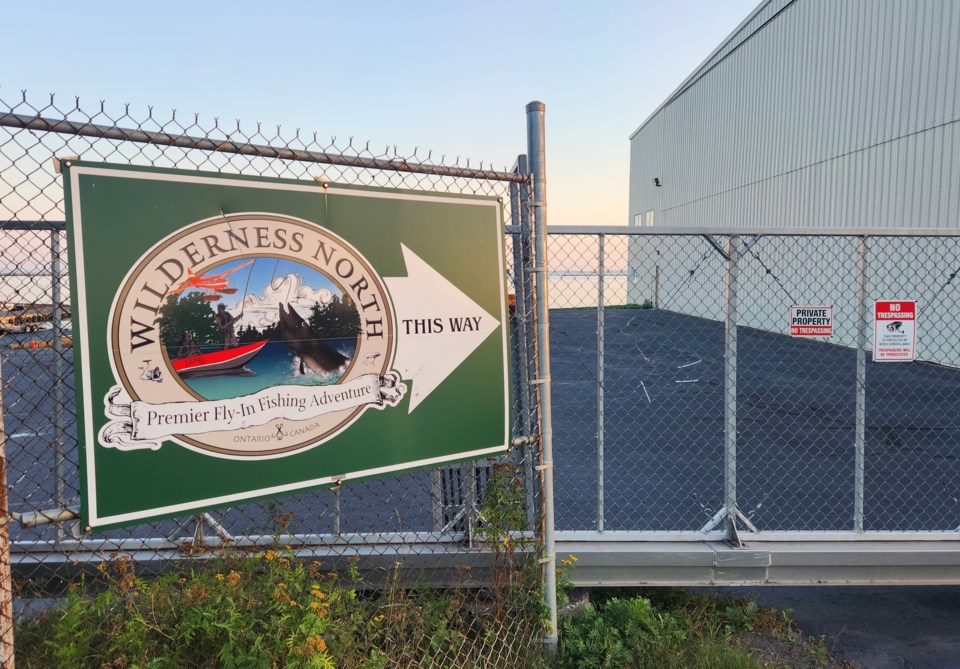An air charter service based in Thunder Bay has been awarded $2.7 million in damages from a subsidiary of Hydro One for breaching a contract.
Wilderness North Air won a contract from Hydro One Remote Communities in 2015 to be the primary supplier of diesel fuel for the generating plants at five remote First Nations for a period of three years, and to be the secondary or backup supplier for seven other communities.
But because First Nations felt the job should go to Indigenous-owned companies, Hydro One Remote Communities Inc. ultimately wound up giving them most of the work that Wilderness North believed it had been contracted to provide, leaving Wilderness North servicing only one First Nation.
One of the other respondents to Hydro One/Remotes' request for proposals was Wasaya Airways, part of the Wasaya Group that's owned by a number of First Nations.
A third bidder was Cargo North, an airline that several other First Nations have a financial interest in.
After Hydro One/Remotes used a scoring matrix to evaluate the responses to its RFP, Wasaya — whose proposed price was 21 per cent higher than the other proponents — was shut out of the air delivery contract, while Wilderness North was awarded 36 per cent of the business and Cargo North got 64 per cent.
Wasaya and its owner First Nations were displeased with the outcome.
The communities passed band council resolutions stating they would not permit any company other than Wasaya on their land to deliver diesel fuel.
Wasaya also sent Hydro One/Remotes a letter noting, "We are 100 per cent First Nations-owned with over one-third of our workforce identified as First Nations people....The chiefs and council of each community have vowed to do everything possible to block any carrier from entering their community except Wasaya."
The letter further stated the company was trying to avoid any public embarrassment to Hydro One, but that if the council resolutions were ignored, the issue would be raised "in the public domain through news agencies" and that "any and all means necessary" would be used to block entry to the First Nations by any other carrier.
Hydro One/Remotes responded to the pressure, but advised Wasaya to "sharpen its pencil."
For Wilderness North, the eventual outcome was that at different points after it was awarded a contract, it was notified its services for four of the five primary communities were no longer required.
Wasaya received the contract for one of them, while Cargo North assumed responsibility for three others that had a financial interest in the company and that had passed band council resolutions supporting Cargo North as their fuel supplier.
Cargo North relinquished its contract to serve four additional First Nations with ownership stakes in Wasaya, after they passed resolutions supporting Wasaya.
Hydro One/Remotes then gave Wasaya the exclusive delivery rights, even though Wilderness North had been the contracted secondary supplier for these communities.
Wilderness North filed a lawsuit in 2017 claiming damages from Hydro One/Remotes for not being used as the main supplier and the secondary supplier, and from Wasaya for inducing Hydro One/Remotes to breach its contract.
Wasaya denied the inducement allegation, arguing it had only followed the wishes of its owner communities and that they have the authority to decide who may or may not deliver to their communities.
Hydro One/Remotes maintained its contract with Wilderness entitled the company only to the right to have purchase orders issued for the supply and delivery of fuel at Hydro's discretion, and that it was not guaranteed the exclusive right to provide the service.
But Madam Justice T.J. Nieckarz of the Superior Court of Justice ruled that Hydro One/Remotes breached its contract with Wilderness North in respect to the communities for whom it was designated the main supplier.
In her Reasons for Judgment, released Aug. 23, she wrote, "I disagree with Remotes’ interpretation that the contract allowed it to not use the services of Wilderness at all when fuel supply and delivery to the primary communities was clearly required during the term of the contract. I further disagree that the contract permitted the use of another supplier at Remotes’ sole discretion. I find that this is an overly broad interpretation of the contract that is inconsistent with the intentions of the parties as reflected in the contract documents."
She added: "Remotes’ interpretation of the contract defeats the purpose of engaging in a rigorous RFP process that results in the identification of primary and secondary vendors for various communities at fixed prices, and the awarding of contracts to these vendors. The RFP process utilized a supply strategy that had built-in provisions to ensure stability of supply (primary and secondary vendors), which I accept was important to Remotes, and competitive pricing weighing heavily in the determination. Reliable service at the lowest cost was the priority of the RFP process. I accept Wilderness’s submission that Remotes’ interpretation of what the contract was for, and what the parties’ rights were under the contract, effectively renders the contract meaningless."
Judge Nieckarz awarded damages of $2,718,988.
She also ruled that Wasaya induced the breach, and held it jointly and severally liable with Hydro One/Remotes for the portion of the damages related to one of the First Nations, in the amount of $856,000.
The judge observed that submissions were made during the trial regarding the right of First Nations to self-govern and direct what happens on their land, and regarding Hydro One's responsibility to honour their will.
"At no point did I take any party to argue, nor should this decision be viewed as any finding, against the right of the sovereign First Nations to govern their lands. This decision is about nothing more than the contractual obligations between Remotes and Wilderness, and whether Wasaya interfered with those obligations," she wrote.




